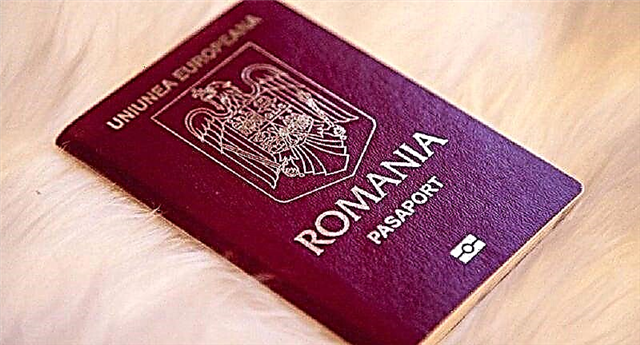Poland attracts a large number of our compatriots, not only in terms of tourism. The proximity of the borders of this state also contributes to the development of close economic relations. Many domestic businessmen see Poland as a country where they can open their representative office, which will allow them to enter the EU markets. But before starting your business there, you need to carefully study all the points that are associated with this process, in particular, tax legislation, in which the corporate income tax (CIT) occupies a special place.

What is the taxation system in Poland
Taxation in Poland for legal entities is represented by state and regional taxes. As in most other countries, there are direct taxes:
- personal income tax (PIT);
- income tax from legal entities (CIT);
- for real estate;
- transport;
- for inheritance;
- for agricultural activities.
There are also indirect taxes: VAT (VAT), excise duty, gambling tax.
A total of 12 types of taxes are levied in Poland. At the same time, not only Poles, but also non-residents who received income here, transfer mandatory fees to the budget of different levels.
Each individual taxpayer in Poland is assigned a PESEL - an individual citizen identification number.
Legal entities, entrepreneurs and payers of insurance premiums are required to have a NIP - an analogue of the Russian TIN. This number is assigned to the company during its registration with the tax office at the place of its future location. To get it, you must fill out a form on the NIP-7 form.
All about corporate income tax
Income tax was introduced in Poland by the Law on Income Tax of 15.02.1992.
According to this law, CIT taxpayers are all legal entities that receive income from their activities in Poland, as well as organizational units of companies registered without creating a legal entity (company, limited liability company).
At the same time, the principle of residence applies, according to which the object of taxation of residents is all income that they received regardless of the place of business (unlimited tax liability), while non-residents transfer income tax from their profits received only in the Republic of Poland (limited tax liability).
In accordance with current tax legislation, income is the amount of revenue that exceeds the cost of receiving it in a particular tax year. If, in the course of conducting its activities, the company received a loss, then over the next 5 years it can reduce its income at the expense of the resulting loss, but not more than 50% of the amount of losses per year.
In addition to business income, income in the form of dividends and interest is also subject to taxation.
As of 2021, the following tax rates apply in Poland:
| Bet size | Condition |
|---|---|
| 0.19 | standard rate of corporate income tax |
| 0.15 | reduced income tax rate. Intended for start-up LLCs whose revenues for the previous year were less than € 1,200,000 |
| 0.2 | non-residents pay to the Polish budget: for the sale of copyright, rights to inventions, for entertainment and sports services, for legal, consulting and other similar services |
| 0.1 | accrued on the income of foreign companies that do not have a registered office in Poland, earned from the carriage of goods and passengers, with the exception of cargo and transit passenger supplies, as well as on the income of foreign air navigation companies |
Who is exempt from paying income tax

According to the current legislation, the following state organizations are exempt from income tax:
- Treasury Department;
- National Bank;
- budgetary organizations;
- trust funds, municipalities;
- Agricultural Development Agency;
- pension and investment funds;
- religious organizations.
In addition, CIT is exempt from income derived from:
- by political parties, organizations or employers, which is aimed at increasing the authorized capital;
- schools, if it is aimed at their development;
- national investment funds;
- sports societies, if used for the development of sports activities;
- religious associations;
- legal entities whose main task is to create public goods;
- from the sale of farm real estate.
The income tax law also does not apply to income received:
- from agricultural activities;
- from forestry management;
- shipping companies, which is subject to a mandatory tonnage tax;
- by a shipowner who is taxed under another law.
CIT Tax Reporting
At the end of the year, all legal entities-taxpayers are required to file an annual tax return on the CIT-8 form within 3 months. This document contains all the information about the amount of revenue and costs.
It should be borne in mind that legal entities are required to submit an annual return within 10 days after the approval of the annual report, but no later than 9 months after the end of the tax year.
In addition to their own annual report, the fiscal service is provided with:
- annual balance;
- profit and loss statement;
- audit report;
- a copy of the decision of the general meeting.
In addition, companies and entrepreneurs in Poland submit a monthly tax return (by the 20th).
Collection of income tax
CIT advance payments are paid by:
- monthly by the 20th of the previous month - in the amount of the difference between the obligatory payment from the beginning of the year and the CIT amount already paid for the previous months;
- quarterly by the 20th of the month following the quarter - calculated in the same way as in the previous paragraph.
Companies that are on the simplified system do not submit monthly returns.
They pay monthly upfront payments calculated on CIT rates in the previous year or on income reported on the return filed two years prior to that tax year.
Income tax on dividends

In addition to the tax on income received from the conduct of activities, business entities are required to “pay” dividend income from participation in the profits of legal entities located in Poland. CIT collection rate on dividends is standard and is 19%.
At the same time, there are separate companies that are exempt from this tax. They must meet the following conditions:
- the company that pays dividends has a representative office registered in Poland;
- dividends received from the company's activities in Poland or in another EU member state;
- a legal entity receiving dividends must own at least 10% of the capital of the company that pays them;
- the recipient of the dividend is a subject of a company in Poland or another EU country or a member state of the European Economic Area with an obligation to pay income tax regardless of where the profit is made;
- the company receiving the dividends owns 10% of the shares of the legal entity, which pays them, provided that it holds these shares for a continuous period of two years.
Payment of tax on the received dividends is made to the account of the fiscal service by the 7th day of the month following the month in which the benefit was received on the basis of the CIT-7 declaration.
International treaties for the avoidance of double taxation
To avoid double taxation by non-residents and improve the investment attractiveness of the country, Poland concludes treaties with other states, due to which the CIT rate is reduced.
The list of concluded agreements is posted on the website of the Ministry of Finance of Poland.
As of 2021, similar agreements were concluded with 93 countries of the world, including the UK, Vietnam, Zimbabwe, UAE, Uzbekistan, etc.
Here is an example of reduced tax interest rates in accordance with concluded agreements:
| State | Dividend rate | Rate from interest received |
|---|---|---|
| Russia | 10 | 10 |
| Ukraine | 5 or 15 | 10 |
| Australia | 15 | 10 |
| Canada | 15 | 15 |
| Italy | 10 | 10 |
| Japan | 10 | 10 |
What other taxes are paid by legal entities in Poland
In addition to CIT, legal entities also pay the following mandatory fees:
- VAT (VAT). In Poland, there are three rates of this tax: 5, 8 and 23%, in some cases the rates are reduced to 0, 4 and 7%, respectively. At the same time, some goods and services are generally exempt from payment. The tax must be paid by the 25th day of the month following the expired month or quarter;
- excise. It is paid on oil products, alcohol, tobacco products, electricity, etc. The complete list of excisable goods consists of 33 items;
- tax on receipt of cash to the account of a legal entity - 0.5%.
Finally
Income tax in Poland is called CIT. It is paid by all companies registered and operating in the territory of the Republic of Poland, as well as non-residents who have made a profit from conducting their activities in this country. The standard tax rate is 19%.
From January 1, 2021, there is a reduced rate of 15% for small businesses who have just started their activities.
CIT is calculated as the difference between revenue and operating costs multiplied by the tax rate. If the company has received a loss, it can write off it over the next 5 years, reducing the income received.
Advance payments for CIT are paid monthly, while the final calculation of income tax must be carried out by April next year.











